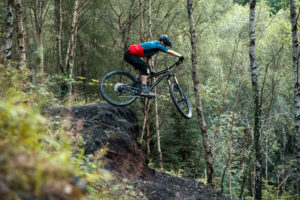In The Saddle: Rab Wardell, founder of Wardell Cycle Coaching
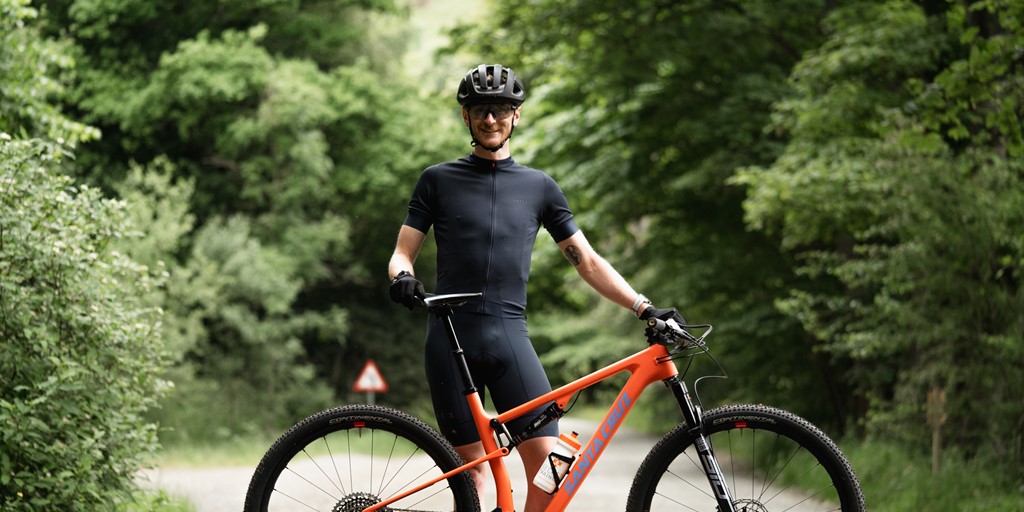
Welcome to our latest instalment of our In The Saddle series.
In this series, we speak to a range of current and ex-professional cyclists, from mountain bikers to road cyclists, putting you ‘in the saddle’ to find out about their careers, experiences, and top tips.
In this Q&A, we sit down with Rab Wardell, a former professional bike rider, racer, and coach from Glasgow, Scotland.
Rab’s impressive cycling career has seen him race on all seven continents, compete in the UCI XCO World Cup, and even represent his native Scotland in the 2006 Commonwealth Games in Melbourne.
A fan of many biking disciplines, Rab set the fastest known time for mountain biking across Scotland’s iconic West Highland Way – his favourite route in the UK – in 2020.
These days, he’s also kept busy by his own coaching business, Wardell Cycle Coaching, which he also launched in 2020.
Read on to find out what he’s learnt as a cyclist.
How did you first get into cycling, and what’s your journey been like?
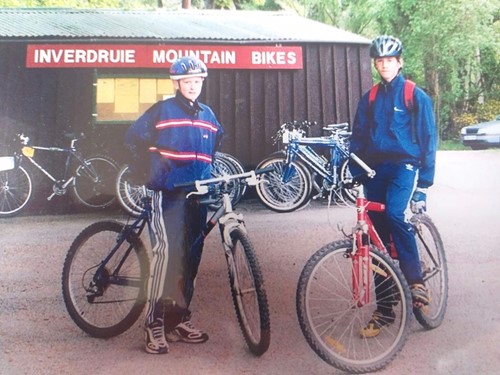
I started mountain biking aged 14 or 15 after trying it out on a family holiday in Aviemore, Scotland. My brother David already had his own mountain bike, and I hired one from a shop for the weekend. David later joined Sandy Wallace Cycles – our local cycling club – and I joined soon afterwards.
The journey to the present day has featured lots of highs and lows. I’ve travelled all over the world to compete and coach. I’ve had victories and, of course, losses. My motivation and love for the sport have come and gone over the years.
However, I’m now more motivated and passionate than ever, and my love of cycling grows every year.
How does the change in seasons impact your training?
Training varies greatly year on year and often relates to my objectives.
In recent years, I’ve sought out indoor riding options when the weather is at its worst at home in Glasgow. This has included BMX riding in skateparks as well as riding on the velodrome in Glasgow.
The biggest change for me has been having a Wahoo KICKR smart trainer set up at home. I enjoy ticking off the goals of a training session and reviewing the data. I’ve even done some virtual racing, too.
On the other hand, I still love riding outdoors and hacking through the mud in a cyclocross race. However, I feel lucky to have indoor alternatives for the days (or weeks) where I don’t feel like facing the cold, wind, and rain.
I’d say I often enjoy training in the winter more than in the summer. I find it quite easy to be consistent and tick off the training goals with fewer distractions. In summer, I feel like I should be out doing more races or doing more group rides and social events. This leads to ‘FOMO’ and, therefore, less consistency and control in training.
There’s less pressure in the winter because the races are months away.
Talk us through a typical few days leading up to a race – how do you prepare yourself?
It depends on what the race is. If it’s an important objective, I want to ensure everything is prepared before the race. I try to make sure I have my nutrition and spare parts ready, and my clothing and equipment prepared.
When it comes to training, my goal is always to stay active without accumulating too much fatigue. I’ll try to work through any training sessions without getting too excited or going over the top with my intensity.
Usually, I’ll have a day off from training on a Friday (if the race is on a Sunday) before doing an activation session on the Saturday.
In terms of mental preparation, I’ve recognised that I begin to feel nervous and anxious in the lead-up to important races. This can sometimes mean I overdo it in training, trying to test and push myself too far.
Nowadays, I try to recognise the anxiety, reassure myself that I’m ready, and have confidence in my ability and in the training I’ve done.
Related: Common cycling fears and how to overcome them
What was it like to represent Scotland at the Commonwealth Games?
It was so long ago now, I almost can’t remember.
In all seriousness, it was a great life experience – however, my races didn’t go well at all.
I got a puncture in the mountain bike race and abandoned it with one lap to go. I was actually racing in the same group as a young, inexperienced Chris Froome, following my puncture, but I abandoned it to save myself for the road race three days later.
In this, I was in a team support role, getting bottles and helping to position our team leader, Evan Oliphant, for the climbs. My last role in the race was helping Alex Coutts re-join the bunch following a puncture. The race kicked off after this, and I was dropped.
At the time, it felt like Melbourne 2006 would be the first of many Commonwealth Games for me. However, there was no mountain bike race in Delhi in 2010, and I didn’t qualify for Glasgow in 2014. Looking back, I regret not finishing the mountain and road bike races in Melbourne, as I’d rather have a finish placing against my name instead of a DNF (Did Not Finish).
I recently read some advice that you should race each race as if it’s your last. I only wish I’d thought this in 2006.
Tell us about Wardell Cycle Coaching – how did that come about, and what are you most proud of?
I’ve worked as a cycling coach since 2007, including work with Scottish and British Cycling, the UCI World Cycling Centre, and other commercial work as a mountain bike coach.
In 2020, I decided the time was right to set up my own coaching business.
My main goal for Wardell Cycle Coaching is to coach cyclists in all disciplines and of all ability levels. Long term, it’s my ambition to grow the company further and employ more coaches to help riders feel more confident and have more fun while learning.
What essentials do you take with you on a ride?
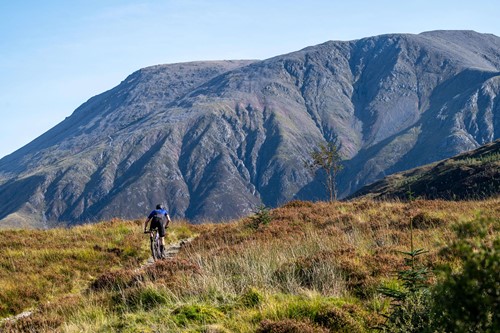
If I’m riding from home, I take basic spares to fix punctures and a multitool. This is usually my Crank Brothers M-20, which includes a tyre plug and plug tool to repair tubeless tyres.
I also carry a Crank Brothers pump or CO₂ with me, and I’ll take appropriate fluids and energy products. These products range from regular electrolyte drinks for short rides to large energy drinks for longer ones.
I’ll make sure I have more spares with me if I’m doing a more remote ride or multi-day trip. This includes first-aid supplies, tyre boots, and an emergency innertube.
Related: Best energy drinks for cycling: hydration explained
How can you tell if the bike you’re riding is right for you – what things do you need to consider?
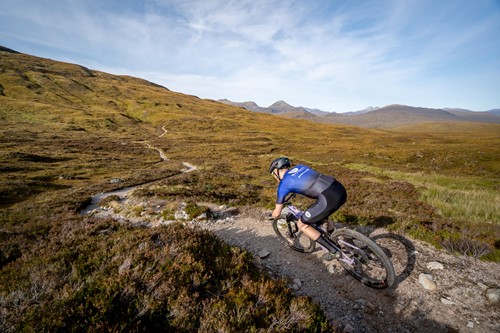
For me, the first thing is knowing what kind of cycling you intend to do and what motivates you.
Are you cycling for transport, sport, adventure, fitness, or something else?
The best piece of advice I can give is to walk into a local bike shop and speak to the staff – do some research and don’t rush into it. Tell the shop staff what you think you’d like to do and ask for their opinion.
Be honest about your budget and what your intentions are, and hopefully, you’ll find the right bike for you.
When it comes to my bikes, I’m fortunate to have the support of Santa Cruz Bikes. I’ve been riding Santa Cruz for more than six years now, and for me, they make the best mountain bikes.
How do you warm up and down before and after a race – do you have any recommendations?
When I’m warming up, I try to stick to simple principles. I begin with some very light riding for five to ten minutes before gradually upping the intensity.
After ten to 15 minutes, I’ll do one or two fast accelerations of six to ten seconds with two to three minutes of easy riding between.
For a cool down, I’ll ride easily for up to ten minutes, or sometimes slightly longer, if I’m racing again the next day.
I’d encourage cyclists to be flexible when it comes to a warm-up and try to keep it simple – ten to 15 minutes of light riding will often suffice.
What are the best and worst routes you’ve cycled in the UK, and why?
I struggle to see past the West Highland Way as my personal favourite UK route. It’s a long-distance, shared access path from Glasgow to Fort William, which makes for an extremely difficult mountain bike ride.
In terms of worst routes, I can’t think of any. However, one of my main frustrations is badly thought-out cycle paths – the kind of paths that end suddenly or take you on a far less convenient and convoluted route than when you’re riding on the road.
Are there any routes you’ve not yet cycled but would like to?
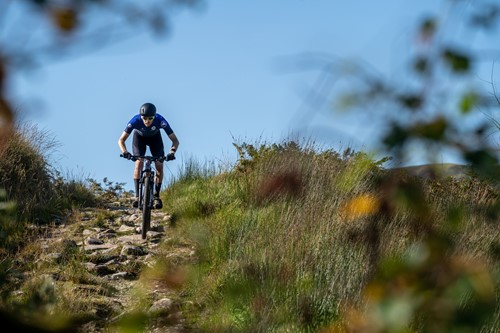
Two routes that spring to mind are Mont Ventoux in France and the Stelvio Pass in Italy.
What one piece of advice would you give to someone thinking of becoming a cyclist?
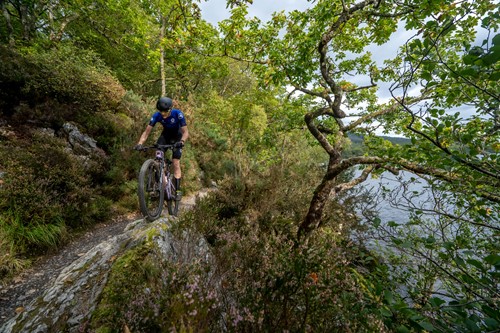
Just do it.
Start small and allow yourself to be proud of your achievements. It can be scary to step out of your comfort zone, but it can also be incredibly fun and satisfying.
If you struggle at first with things like clothing or seat discomfort, try not to be put off, because there are solutions. If you need help, check out resources like British Cycling, join a group ride event or a club, and speak to the staff in your local bike shop.
Thanks to Rab for his insights!
You can follow him on Instagram at @rabwardell.
If, like Rab, you’re a keen cyclist, or perhaps you’re feeling inspired by his story to get in the saddle yourself, you need to make sure you have the right insurance first.
Specialist bike insurance protects you from injury or claims that might be made against you and your bike in the event of theft, damages, or if it’s stolen.
At Cycleplan, we offer equipment cover for a range of bikes and accessories up to the value of £30,000. We also provide protection such as personal accident cover, public liability, and more.
Find out for yourself what our specialist cycling insurance covers, and get an instant online quote today.
Related
In The Saddle: James Shaw from Ribble Weldtite Pro Cycling
In The Saddle: Jamie Carruthers from Mtb Trail Hub
The 13 Best Mountain Bikes Under £500 In 2021


